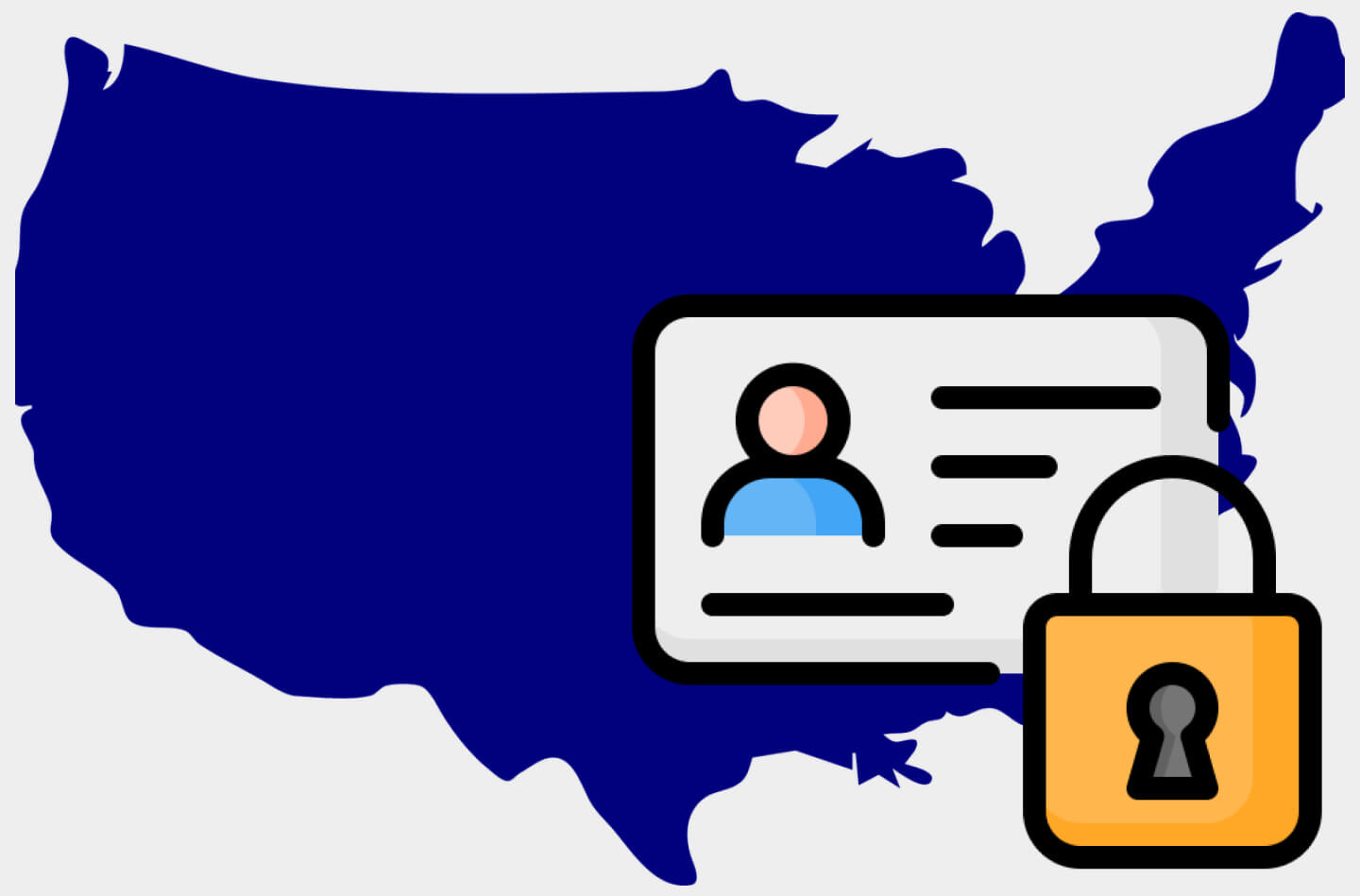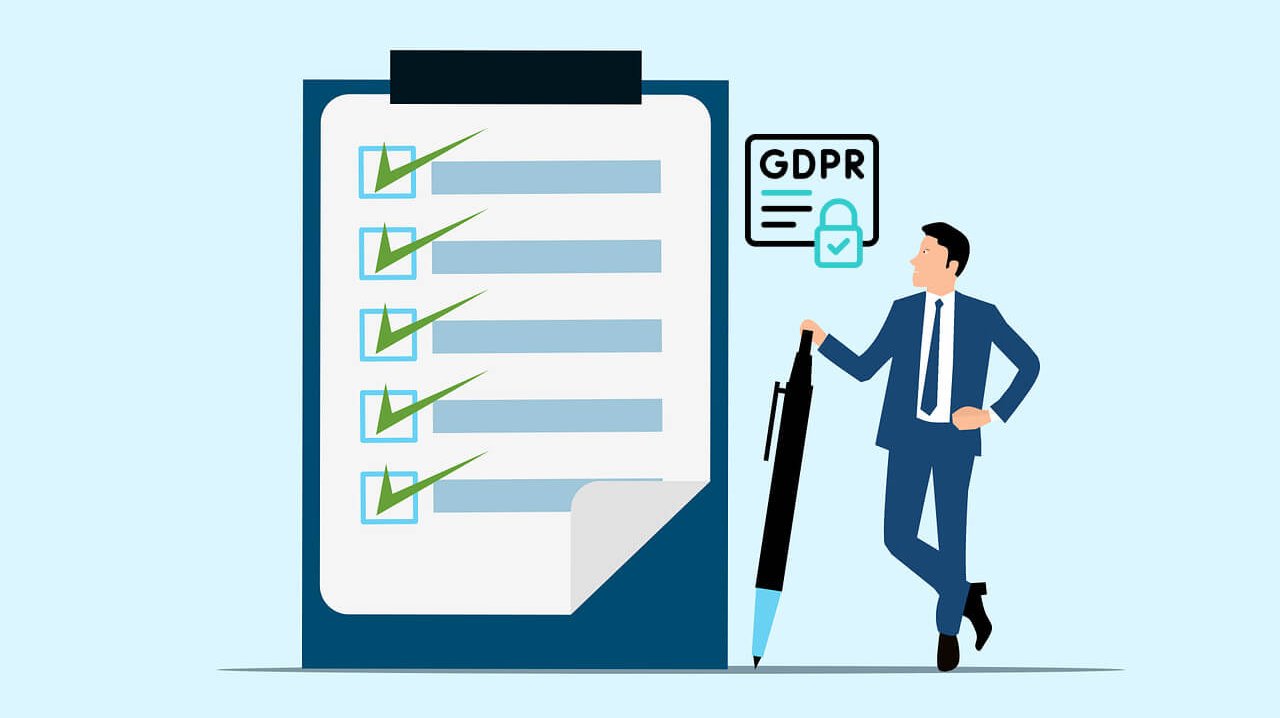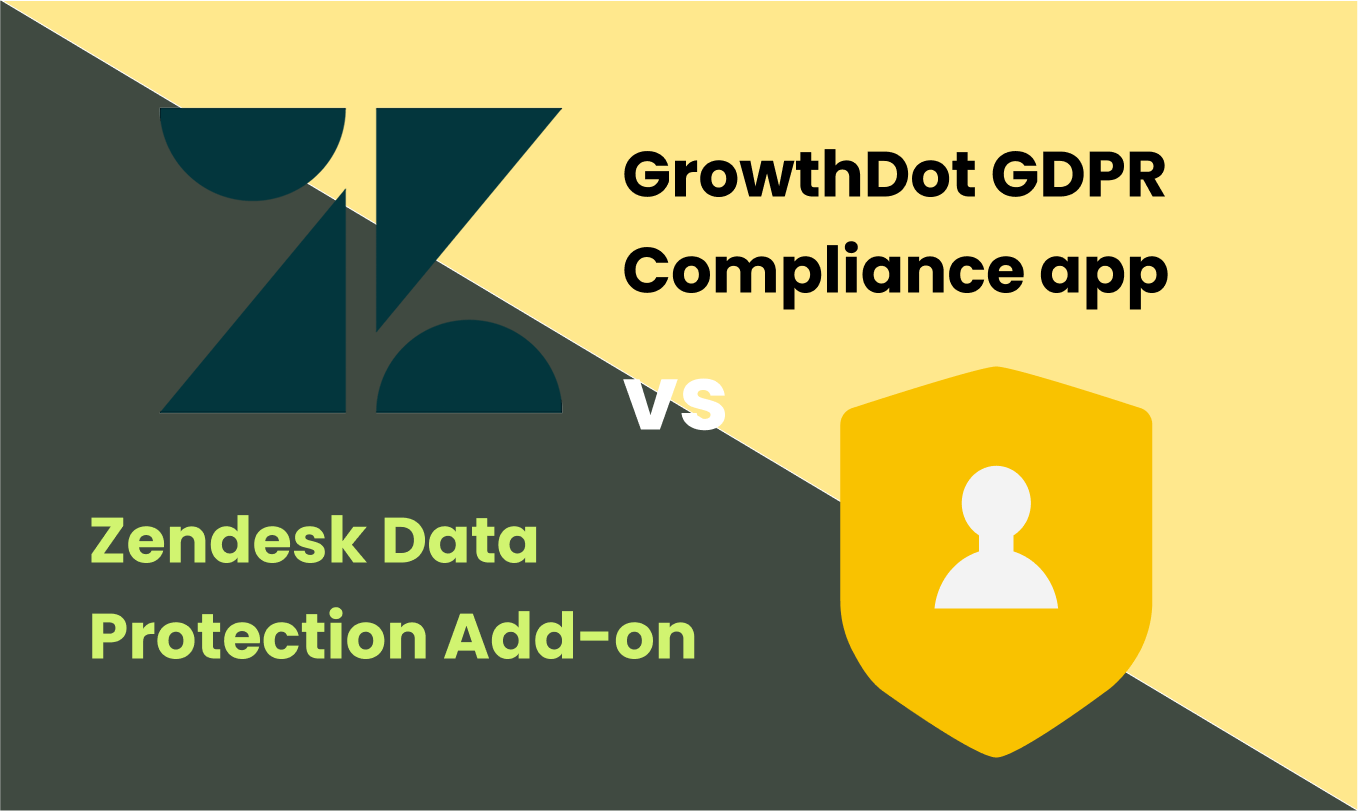In an era where data breaches and privacy concerns are increasingly common, understanding the General Data Protection Regulation (GDPR) is crucial for any US-based business interacting with European data.
Despite being a European Union regulation, the reach of GDPR extends far beyond its borders, impacting companies globally, including those in the United States.
This article serves as a comprehensive guide, providing a GDPR compliance checklist for US companies. This checklist ensures that your business operations align with stringent privacy standards and helps safeguard the behavior of consumers interacting with your brand.
By adhering to these guidelines, companies can avoid hefty GDPR fines for US companies and foster a trust-based relationship with their customers.
What is GDPR Compliance?
GDPR compliance involves adhering to a set of regulations enacted by the European Union in 2018 to protect the privacy and personal data of EU citizens.
For US-based companies, understanding these rules is not just about legal compliance but about respecting the privacy standards that have become a global benchmark.
GDPR in the US sets forth principles around the lawful processing of personal data, ensuring that data is handled securely and transparently. It also empowers individuals with rights over their data, including access, correction, and deletion rights.
For a company to be considered compliant, it must not only follow these principles but also implement organizational measures and security measures to protect data effectively.

Key aspects of GDPR in US for businesses include maintaining processing agreements with third parties, appointing a protection officer if necessary, and establishing clear retention policies for how long personal data can be kept.
Moreover, businesses must have a solid legal basis for processing personal data, which involves obtaining explicit consent from individuals or proving that processing their data is necessary for the performance of a contract or for compliance with a legal requirement.
For US-based companies, particularly those that might think they are too far removed from the EU to be affected, it is essential to understand that any interaction with European customers or the handling of their data brings GDPR into play. Thus, compliance is not only a legal requirement but also a competitive advantage in today's data-driven global market.
The Benefits of GDPR Compliance
Adhering to GDPR presents numerous advantages that can significantly boost a US-based business.
Embracing GDPR compliance capabilities in the US demonstrates a commitment to data protection, which can enhance the trust and confidence of customers, partners, and regulatory protection authorities alike.
Trust and credibility
In an environment where consumers are increasingly aware of data breaches and privacy concerns, showing compliance with GDPR in the US can distinguish your business as trustworthy. This trust is invaluable, as it can influence the behavior of consumers, leading to increased customer loyalty and retention.
Access to European markets
For any U.S.-based company aiming to operate in or expand into European markets, the GDPR compliance process is a gateway. A compliance solution ensures that companies can legally process and handle the personal data of EU citizens, which is a fundamental aspect of conducting business in these regions.
Reduced risk of fines and legal issues
GDPR fines can be substantial, reaching up to 4% of annual global turnover or €20 million, whichever is higher. By following a GDPR compliance checklist for US companies, businesses can mitigate the risk of these severe penalties and avoid costly legal battles.
Enhanced data management
The requirements to map out and justify the processing agreements, retention policies, and security measures under GDPR encourage companies to reassess their data management strategies. This often leads to more efficient data handling practices and can uncover ways to streamline operations and reduce unnecessary data storage.
Does GDPR Apply to US Citizens?
The territorial scope of GDPR is one of its most unique aspects, as it extends far beyond the borders of the European Union.
A common question among US-based businesses is whether GDPR applies to the data of U.S. citizens and ‘Does GDPR apply to EU citizens living in the US?’. The answer hinges not on citizenship but on the location and context of the data processing.
GDPR in the US applies to the processing of personal data within the EU, regardless of the individual's nationality. Moreover, it also applies to organizations outside the EU that offer goods or services to or monitor the behavior of individuals within the EU.
Therefore, if a US-based company targets or collects data from individuals in the EU, it must comply with GDPR, irrespective of whether these individuals are EU citizens or US citizens residing in the EU.

This global reach means that any US-based business that has a digital presence accessible by Europeans, or that uses tracking technologies to monitor European users' behavior, falls under the purview of GDPR. Consequently, such companies must ensure their data protection practices align with GDPR, even if their primary operations are based outside of Europe.
GDPR has set a high standard globally, influencing other countries, including the US, to consider or implement similar regulations. The US equivalent of GDPR, such as the California Consumer Privacy Act (CCPA), mirrors some of these standards, showing the growing global trend towards stringent data protection.
Does GDPR Apply to US Companies?
Does the GDPR apply to the US? And does GDPR apply to US government?
One of the key considerations for US-based businesses is determining the GDPR applicability to US companies. The simple answer is yes, GDPR can apply to US companies, particularly if they engage in certain essential business activities that involve the data of individuals in the European Union.
GDPR applies to any entity, regardless of its location, that processes the personal data of individuals within the EU in connection with offering goods or services or monitoring their behavior.
For US-based companies, this means that any interaction with EU customers, such as through websites, mobile apps, or e-commerce, triggers GDPR compliance requirements for US companies.
The regulation mandates stringent data protection and privacy measures, which include:
- Ensuring transparency in data processing activities
- Securing personal data against unauthorized access and breaches
- Implementing privacy standards and organizational measures that uphold data subject rights
For US companies, understanding and implementing these GDPR requirements is crucial, not only to avoid hefty fines but also to build trust with European customers who are increasingly concerned about privacy. To help streamline this process, our GDPR Compliance app for Zendesk offers a comprehensive solution. This app simplifies data management, ensures compliance with GDPR regulations, and helps you safeguard customer information effectively.
GDPR in US also promotes accountability, requiring companies to maintain detailed records of their data processing activities and, in some cases, to appoint a Data Protection Officer (protection officer). Compliance is monitored by European regulatory authorities, and non-compliance can lead to severe penalties.
For businesses unsure about their exposure to GDPR in the US, key questions to consider include:
- Do you offer goods or services to individuals in the EU?
- Do you collect, store, or process personal data of individuals in the EU?
- Do you use data analytics or tracking technologies that monitor the behavior of users in the EU?
If the answer to any of these questions is yes, then GDPR compliance in US is not just advisable but mandatory, representing a critical aspect of your legal and operational framework.
How Does GDPR Affect US Companies?
The impact of the General Data Protection Regulation on US companies can be profound, affecting multiple aspects of business operations, particularly those involving data handling and customer interactions.
GDPR influences US-based companies in several significant ways:
1. Enhanced data protection responsibilities
GDPR in the US mandates that companies implement comprehensive data protection measures to safeguard personal information. This includes using encryption, ensuring data minimization, and securing data against loss, theft, and unauthorized access.
2. Increased accountability and transparency
Companies must provide clear documentation on how they collect, use, and manage personal data. This involves creating or updating privacy policies, being transparent about data retention periods, and detailing the use of data in processing agreements.
3. Consent and rights of individuals
GDPR places great emphasis on consent, requiring that it be freely given, specific, informed, and unambiguous. This means that US companies must obtain explicit consent from EU residents before collecting or processing their data. Additionally, individuals have the right to access their data, request corrections, and even demand deletion, which companies must accommodate.
4. Cross-border data transfers
For US-based businesses that transfer personal data outside the EU, GDPR in the US requires that adequate safeguards be in place to protect the data during transit and at its destination. This often involves negotiating standard contractual clauses or adhering to frameworks like the Privacy Shield (though its adequacy has been challenged in recent rulings).
5. Potential for hefty fines
Non-compliance with GDPR can lead to significant financial penalties, which can be as high as 4% of annual global turnover or €20 million, whichever is greater.
GDPR Requirements for US Companies
Here are the key requirements that US-based businesses need to consider:
- Implement advanced security measures to protect personal data from unauthorized access, alteration, and loss. This includes the use of encryption, secure data storage solutions, and regular security audits.
- Ensure that there is a legal basis for each data processing activity. Common legal bases include consent from the data subject, necessity for contract fulfillment, compliance with a legal requirement, or legitimate business interests.
- Uphold the privacy rights of data subjects by providing mechanisms for them to access their data, request corrections, object to processing, and seek deletion of their data when it is no longer necessary or if they withdraw consent.
- Conduct Data Protection Impact Assessments (DPIA) for processing activities that pose high risks to individuals' rights and freedoms. This helps identify and mitigate risks effectively.
- Appoint a Data Protection Officer (protection officer) if your company engages in large-scale processing of sensitive data or regularly and systematically monitors data subjects on a large scale.
- Maintain detailed records of data processing activities, including the purpose of processing, data categories processed, data recipient details, and data retention periods. This documentation is crucial for demonstrating compliance with regulatory authorities.
- Implement procedures to detect, report, and investigate personal data breaches. GDPR in the US requires that data breaches likely to result in a risk to the rights and freedoms of individuals be reported to the relevant supervisory authority within 72 hours of becoming aware of the breach.
- Ensure compliance with GDPR regulations on data transfers outside the EU. This may involve adopting standard contractual clauses, ensuring the receiving country has adequate data protection laws and privacy laws, or obtaining explicit consent from data subjects.
GDPR Compliance Checklist for US Companies

Here is a comprehensive GDPR compliance checklist for US companies to help ensure that all necessary measures are in place:
Assess your data processing activities
- Identify what personal data you collect, how you use it, and who has access to it.
- Determine whether the data processing is necessary and proportionate to your business operations.
Verify the legal basis for data processing
- Ensure each data processing activity has a valid legal basis, such as consent, contractual necessity, or another legal requirement.
Review and update Privacy Policies and Cookie Policy
- Update your Privacy Policy to include detailed and transparent information about your data processing practices.
- Clearly communicate the rights of data subjects, including how they can exercise them.
Implement data protection measures
- Enhance your security measures to protect data against unauthorized access, breaches, and leaks.
- Regularly review and update security practices to address potential vulnerabilities.
Manage consent effectively
- Establish mechanisms to obtain, record, and manage consent from data subjects.
- Ensure that withdrawing consent is as easy as giving it.
Appoint a Data Protection Officer
- Consider appointing a Data Protection Officer (protection officer) if your processing operations meet the criteria requiring one under GDPR.
Prepare for data subject requests
- Set up processes to promptly respond to data subjects' requests to access, rectify, delete, or transfer their data.
Conduct data protection impact assessments
- Perform DPIAs for processing activities that pose high risks to individuals' privacy.
Document compliance efforts
- Keep detailed records of all data processing activities, compliance efforts, and any actions taken to comply with GDPR.
- Document all decisions regarding data processing to demonstrate accountability.
Ensure compliance in data transfers
- Verify that data transfers outside the EU meet GDPR standards, using appropriate safeguards like standard contractual clauses.
Develop a data breach response plan
- Establish a plan to detect, report, and investigate personal data breaches in compliance with GDPR's timeline.
Summary
For American companies, navigating the complexities of GDPR in the US is essential, not just for legal compliance but for maintaining and enhancing global business relationships.
This guide has outlined the key aspects of GDPR compliance for small US companies and big enterprises, from understanding whether GDPR applies to implementing robust data protection measures.
By adhering to the provided checklist, companies can ensure they meet GDPR requirements, mitigate risks of fines, and build trust with customers and partners in the EU and beyond.
As you consider the future of your company's international operations, ask yourself: Isn't investing in top-notch data protection practices a small price to pay for securing the trust and loyalty of customers worldwide?
FAQs: GDPR Compliance in the US
Why must US companies comply with the GDPR?
US companies must comply with the GDPR if they offer goods or services to EU residents or monitor their behavior, as the regulation protects the data privacy of individuals within the EU regardless of where the company is based.
Does the GDPR apply to EU citizens in the US?
No, the GDPR applies to the personal data of individuals within the EU, regardless of their citizenship. If the data processing occurs in the context of an EU establishment, GDPR may still apply.








